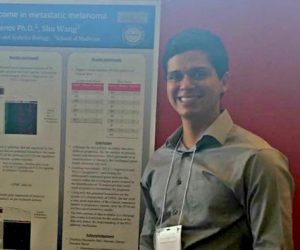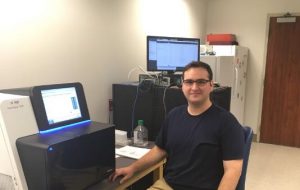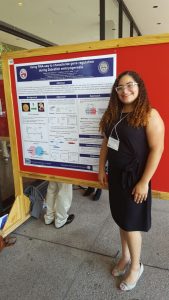Hi! I am Andres Lopez Rivas, a Biology undergraduate student at the University of Puerto Rico, Río Piedras campus. Thanks to the IDI-BD2K program, I am currently on an Internship in Biomedical Research, Informatics and Computer Science (iBRIC) at the University of Pittsburgh. Working with professor Takis Benos, I collaborated with graduate students on a groundbreaking research, examining gene expression and pathway analysis involved in resistance to PD-1/PD-L1 immunotherapy on melanoma patients. We are trying to identify biomarkers that can predict the outcome of the patient’s cancer when the immunotherapy is delivered. Understanding the mechanism involved in this immunotherapy is not only important in melanoma patients but also in numerous cancer types like kidney, bladder, non-small cell lung and others since the pathway that this therapy triggers governs in a multitude of cancer types. Nowadays the researchers of medicine, as well as researchers in other branches of investigation, must assume a more interdisciplinary role to encompass the challenges and find a solution. This program not only deepened my knowledge in biology, mathematics and computer science but also gave me the tools to apply it to problems that every researcher in my field faces. At the end of the week all of the interns will be presenting a poster at Duquesne University along with other interns from different programs. Although it has been a challenging 10 week internship, my colleagues and I have been enjoying every minute of it by going to baseball games, festivals, museums, theaters, concerts and many other things the city of Pittsburgh has to offer.


